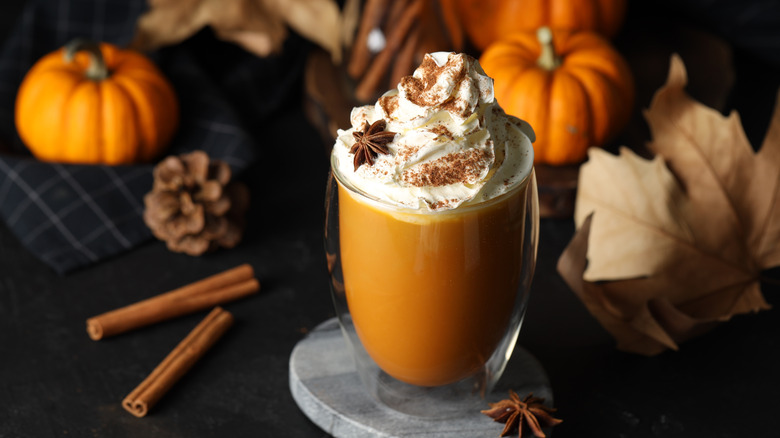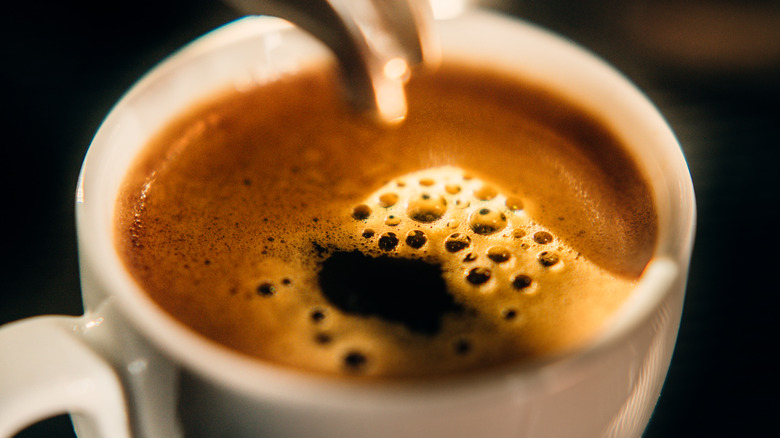How Much Caffeine Is In Starbucks' Pumpkin Spice Latte?
The Starbucks pumpkin spice Latte is easily one of the most popular drinks at the coffee chain — it's a staple for many Starbucks fans during the annual autumnal season. But while you're enjoying your pumpkin spice latte every fall, have you ever wondered just how much caffeine is in the beloved drink? For anyone — including the pumpkin spice drink lovers out there — who wants to keep track of their caffeine intake, here's a breakdown.
A Starbucks tall (12-ounce) PSL contains 75 milligrams of caffeine, while both the grande (16-ounce) and venti (20-ounce) sizes contain 150 milligrams. Each shot of espresso is 75 milligrams — the tall has one shot, the grande and the venti have two shots. So, if you add an extra shot, that adds 75 milligrams of caffeine. However, baristas use three shots for the venti size for iced lattes at Starbucks, including iced pumpkin spice lattes. So, in that case, the venti contains 225 milligrams of caffeine.
To put this caffeine amount into perspective and compare it to a few other items on the menu, Starbucks' grande iced coffee contains 185 milligrams of caffeine, while a grande cold brew contains 205 milligrams. As for some of the non-coffee items, a grande matcha latte has 65 milligrams, and a classic grande iced black tea has 25-30 milligrams.
How much caffeine should you have in a day?
Okay, so now that we know that a Starbucks pumpkin spice latte has 150 milligrams of caffeine, or, if you get a tall, 75 milligrams. But how does that fit into the ideal amount of an individual to consume in a day? Or, in other words, how many pumpkin spice lattes can you have in one day if you're craving more than one?
According to the FDA, it's safe for most adults to consume up to 400 milligrams of caffeine daily. That means that you can have one tall and two grande pumpkin spice lattes safely in a 24-hour span, as that would add up to 375 milligrams of caffeine. If you consume too much caffeine regularly, you risk specific side effects, such as headaches, stomachaches, insomnia, or nervousness. It can even cause a fast heartbeat or shaky muscles. With this in mind, it's important to keep track of how much caffeine you consume each day, which is why it pays to learn about foods and drinks you may not know have caffeine in them.
And if you crave more coffee after you've already had a few cups, you could always have a cup of decaf instead. While it's a total myth that decaf coffee is free of caffeine, it has significantly less than regular coffee: About 5 milligrams in a 12-ounce cup.

